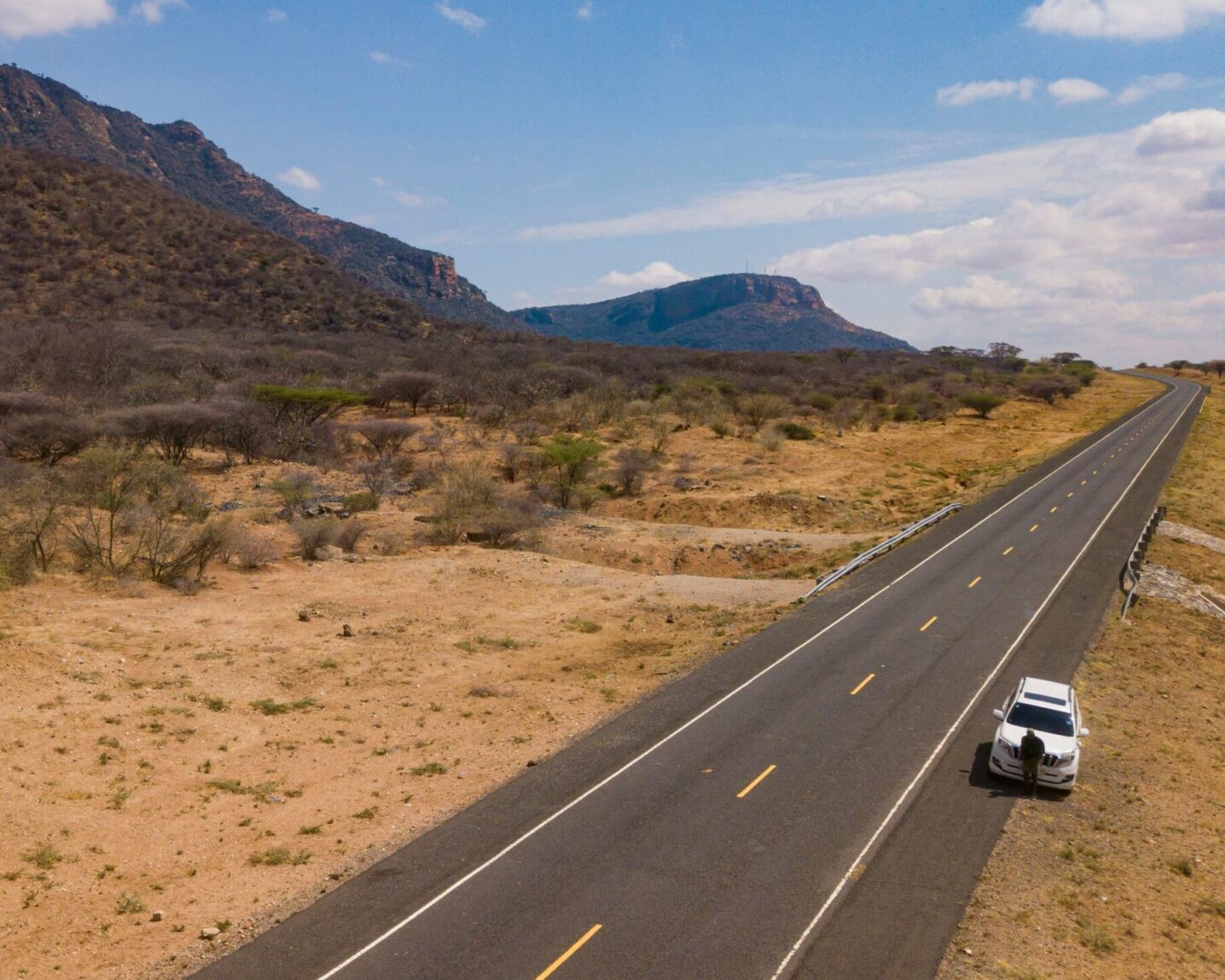Climate risk assessment for road upgrading project in Kenya
The Kenya-South Sudan Link Road upgrading project aims to enhance road infrastructure to withstand the impacts of climate change, ensuring sustainable development. This involves collaboration among stakeholders to integrate local and regional requirements, addressing vulnerabilities to climate-induced damages such as flooding and extreme weather.

The challenge
The project aimed to address the significant challenge of climate resilience in the country’s transport infrastructure. With increasing climate variability, the project focused on mitigating risks associated with extreme weather events and enhancing the durability of road networks. The primary challenge was to integrate climate resilience into existing infrastructure planning and management practices, ensuring that roads remain functional and safe under changing climatic conditions, with a focus on nature-based solutions for the two roads affected by climate conditions.
The approach
Rebel’s approach to the Kenya Road Climate Adaptation project was methodical and inclusive, emphasizing stakeholder engagement, rigorous assessments, and innovative solutions.
- Stakeholder Engagement: The project began with an online kick-off meeting to discuss the methodology and plan a field visit. Engaging local stakeholders was crucial to understanding the context, gathering data, and aligning objectives.
- Field Visit: This visit aimed to assess the local context, including the transport system and the natural environment. It was vital for grounding the project in real-world conditions and gathering necessary data.
- Climate Hazard Assessment: This task involved a detailed analysis and mapping of climate hazards affecting the transport infrastructure. Workshops were held to build local capacity in hazard assessments and validate results with stakeholder input.
- Vulnerability Stress Testing: Assets were subjected to climate vulnerability tests to identify critical weaknesses and potential risk hotspots. This step was fundamental in understanding the resilience of the existing infrastructure.
- Mitigation Measures: Potential measures to mitigate identified risks were discussed in workshops, using tools like STAIN for scoring and prioritizing options. This collaborative process ensured that the selected strategies were both effective and contextually appropriate.
6. Resilience Strategy: The final workshops focused on prioritizing different measures and developing a comprehensive resilience strategy. Detailed explanations of the chosen measures and their implementation plans were provided to stakeholders, ensuring transparency and a shared understanding.
7. Preliminary Identification: Initial options for adaptation and resilience were identified, leveraging both local knowledge and advanced climate analytics from Royal HaskoningDHV and Lobelia.
8. Prioritization and Economic Analysis: A rigorous process was used to prioritize the measures, including an Excel-based economic analysis to evaluate their feasibility and impact. This ensured that the selected options were not only effective but also economically viable.
Rebel’s approach was comprehensive, blending technical expertise with stakeholder engagement to ensure that the solutions were practical, sustainable, and tailored to local needs.
Impact
Rebel's involvement improved stakeholder engagement and developed a toolkit for climate-resilient road projects.


